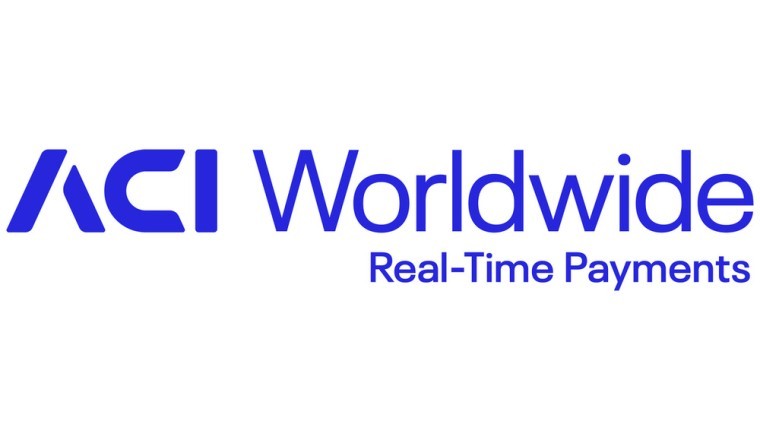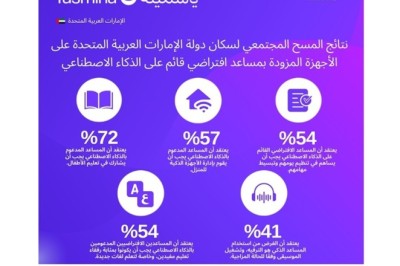
DUBAI, United Arab Emirates — Middle East is fast becoming the global hotspot for the real-time payments revolution sweeping the globe. The region is the fastest-growing real-time payments market globally, with transactions in the region expected to grow from $675 million in 2022 to $2.6 billion by 2027, representing a compound annual growth rate (CAGR) of 30.6%, according to the 2023 Prime Time for Real-Time report, published by ACI Worldwide (NASDAQ: ACIW), a global leader in mission-critical, real-time payments software, in partnership with GlobalData, a leading data and analytics company.
According to the report, the Kingdom of Saudi Arabia (KSA) and Bahrain are the leading real-time payment markets. While KSA is the biggest market when it comes to real-time transaction volumes, Bahrain leads in terms of consumer adoption thanks to new, sophisticated use cases and digital payment services. As governments and regulators in the Middle East set new mandates for adoption, several countries in the region, including the United Arab Emirates (UAE), Qatar, Kuwait and Oman, are expected to launch domestic real-time schemes soon, with innovative features and overlay services high on the agenda.
"Real-time payments growth and adoption in the Middle East has been remarkable. Thanks to visionary governments and support of central banks, the region now has a great opportunity to drive economic growth and financial inclusion through real-time payments," said Santhosh Rao, Senior Vice President, MEASA, ACI Worldwide. "ACI has worked across the world to support governments and banks as they roll out real-time payments, and we are committed to help the countries in the Middle East reap the full benefits of real-time payments."
With consumers and businesses demanding cheaper, faster and more efficient ways to pay, and merchant acceptance of real-time payments on the rise, consumer and business adoption via popular new use cases is heating up. This year’s Prime Time for Real-Time report analyzes real-time payment transactions per head of population per month for the first time, highlighting where consumers and businesses most actively use them.
Country Spotlights
Bahrain: A global and regional leader in real-time payments consumer adoption
Bahrain is projected to be the world’s leader in consumer adoption of real-time payments, according to the report. By 2027, every Bahrain citizen is expected to make an average of 83.3 real-time transactions per month, which makes Bahrain the world’s leader, ahead of Brazil and Thailand and its closest regional competitors, KSA and UAE.
The report highlights that real-time payments are strongly embedded in the everyday lives of consumers and businesses in Bahrain. In 2015, the Central Bank launched Fawri+, a real-time payments system that sets the standard for instant payments in the region. Today, nearly 60% of electronic payments in the country are processed in real time — forecasted to rise to 78.6% by 2027. With the support of the Central Bank enabling easier use through digital apps like BenefitPay, real-time payments are helping promote financial inclusion and increase financial stability across the economy, leading to stronger economic growth.
Total real-time transactions in the country are expected to grow from 276 million in 2022 to 1.3 billion in 2027, representing a CAGR of 35.5%, outpacing any other market in the Gulf.
KSA: The region’s largest real-time payments market
KSA continues to lead the real-time payments revolution in the Middle East as the region’s largest real-time payments market. 352 million real-time transactions were recorded in 2022, forecasted to climb to 1.2 billion in 2027, a CAGR of 26.1%.
In light of the government’s support to advance the real-time payments modernization of the national payments infrastructure, KSA has seen an accelerated shift towards non-cash payments in recent years. In 2027, the majority of payments in the Kingdom are expected to be electronic, with 7.4% being real-time payments and 48.6% other forms of electronic payments.
The report also reveals that KSA has broken into the global Top 10 for mobile wallet adoption — taking spot number 9 — with 80% of consumers in KSA stating they are avid mobile wallet users. This can be partly attributed to the Kingdom’s response to COVID-19, as the government urged consumers to adopt new forms of cashless payments.
Much of KSA’s real-time payments success can be credited to the Kingdom’s Vision 2030 plan, which promotes the modernization of the country’s payments infrastructure and the adoption of digital payments to foster economic growth and financial inclusion.
UAE: Launch of the national Instant Payment Platform is expected to turbo charge real-time payments growth
According to the ACI report, 37.2 million real-time transactions were made in the UAE in 2022, and this number is expected to increase to 146 million by 2027, representing a five-year CAGR of 31.5%. Moreover, real-time payments accounted for only 1.1% of total paperless transactions in 2022; this figure is expected to rise to 12% of electronic payments by 2027.
Since last year, ACI Worldwide has been working closely with all market participants to build the domestic real-time payments scheme. The phased rollout of a national Instant Payment Platform is expected later this year, through which payments and fund transfers in the UAE can be processed 24/7 and in real time. The scheme, which will require the participation of all financial institutions in the country, is expected to offer core payments based on the new instant payment rails and overlay services such as Request to Pay.
ACI Worldwide powers 25 domestic and pan-regional real-time payment schemes across six continents — including nine central infrastructures — providing solutions to central banks, participant banks, fintechs and other payment service providers. The Middle East is among the company’s leading regional markets — ACI is currently supporting three countries in the region to build domestic real-time payments infrastructures. This adds to ACI’s long history of success in Asia, where ACI powers the central infrastructures for Indonesia, Malaysia and Thailand and supports many real-time payment schemes across the APAC region, including Singapore, Philippines and Australia.



















Facebook Conversations
Disqus Conversations